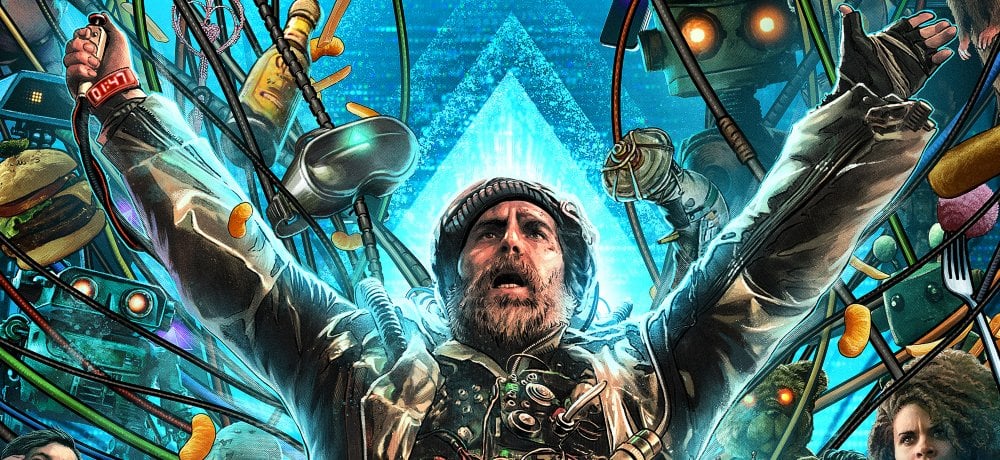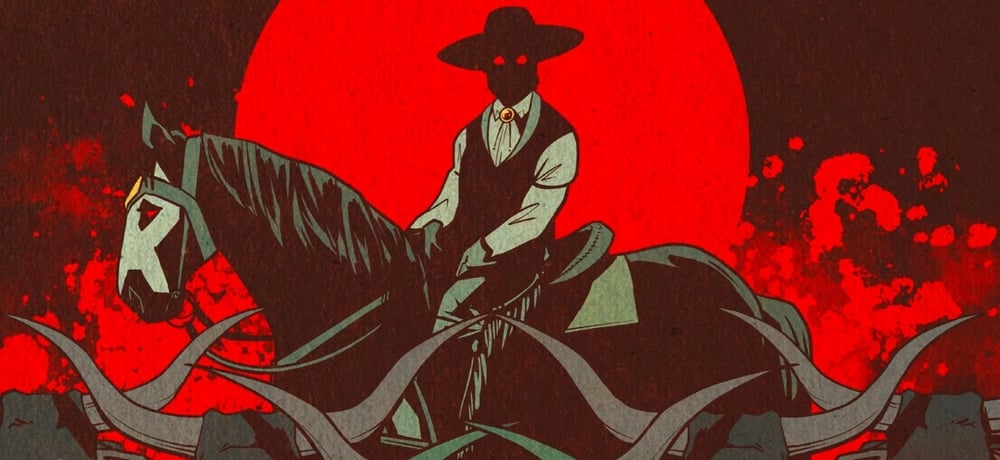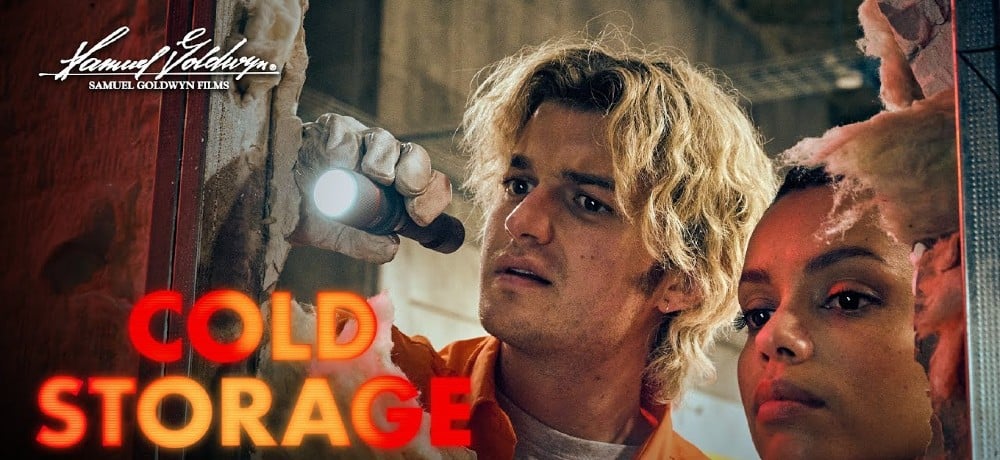





From August 4th through August 6th, Flashback Weekend Chicago Horror Con took over the Windy City, and Daily Dead was on hand for all the horror-fied festivities. Throughout all three days, this writer served as one of Flashback’s co-hosts, and brought back some highlights from several of the panels held over the course of the convention.
Below is the first part of our excerpts from the panel featuring the women of A Nightmare on Elm Street, Heather Langenkamp, Amanda Wyss, and Ronee Blakley. The actresses discussed how the landmark film from Wes Craven helped define a generation of kids who were directly affected by divorce, and they also shared stories from their experiences collaborating with Craven. In case you missed it, you can read part 1 of our A Nightmare on Elm Street panel coverage HERE.
One thing I want to discuss is the relationship between Marge and Nancy in Nightmare. I grew up with a single mom and she had to work a lot of jobs, so she wasn't around a lot. And what I loved about horror in the ’80s is that there were a lot of directors who were starting to address this pattern of single parent homes, so A Nightmare on Elm Street really was huge to me because of the relationship between Marge and Nancy, and even Tina was in a similar situation at home, too. Of course, horror movies are fun and everything, but did it dawn on you at that point, or was it something that maybe came in later, just how important this story would be to some kids who were growing up in these types of homes?
Amanda Wyss: Well, Wes had gotten divorced a few years earlier before we made Nightmare.
Heather Langenkamp: A few years. His kids were young. But I think Wes was writing from a point of view of understanding that American culture had taken a huge change. The ’60s happened, and then you had the ’70s where everything was in flux, and then— bam—it was the ’80s. You have all these broken households and you have all these kids who were really the ones bearing all the pain and suffering, so he definitely was preaching some of the own life experiences he was having with his own kids and his own divorce into the story of Nightmare.
I didn't grow up with that many kids who had come from broken homes, because in the ’60s, divorce was just starting to happen. I remember the first girl I knew, her name was Kim, and her mother was a single mom, but that was when I was in the sixth grade. Growing up in Tulsa, Oklahoma, it was a much more conservative place and divorce wasn't as widespread. So it wasn’t until later on, when I was in college and high school, where I saw folks separating and I couldn't believe it. So, to me, Nightmare was also a learning experience, where I was trying to learn from people who had been going through that kind of pain.
Ronee Blakley: Wes had a way with kids. You hear about a horse whisperer, but he was a teenage whisperer. He knew how to get the performances out of everybody, some of whom were really beginners. And there’s the way Wes made you aware that these kids were from different backgrounds, like Nick Corri was playing a juvenile delinquent-type whereas the others were more clean-cut middle class kids, but there was still sympathy for all of them even though they came from different backgrounds.
Heather Langenkamp: Divorce became this tidal wave back then and Wes might have just been riding that wave by coincidence, mostly from the fact that he was putting something personal to him in this story.
Can you share with us your favorite Wes memory? It doesn't even necessarily have to be from Nightmare, either. I just love hearing stories about him and I know his presence is greatly missed from everyone who either knew him, loved him, or loved his work.
Heather Langenkamp: I have so many different memories of him because I knew him during various stages of his life. My husband actually knew him as well on Serpent in the Rainbow, because they lived in Haiti together for a few months while they made that movie. So Wes to me was always very professional and fatherly. I don't think he ever wanted to cross the line, like so many directors can be when you're dealing with an 18-year-old girl, so he was always more like an uncle or father to me.
And then, when I talked to my husband, who worked with him only maybe a year later, according to him, Wes was a wild man. They were having a blast, partying all night, everyone's drinking a lot and having so much fun. And I felt so jealous, like, why don't I have any stories like that? Mine were about Wes and I having an intellectual talk about something.
Wes was very concerned about our popular culture because he was always an outsider to it. He grew up in a way that was so conservative Christian, he felt like he was always looking into our American society, sitting on the outside looking in. And even as a man who had Hollywood in the palm of his hand, he was always a kind of awkward member of our pop culture world. He always wanted to be an observer of it. Whenever I would get together with him, we would just talk about our observations of the world as it is, and his observations were always kind of pessimistic. He didn't have a lot of hope that kids were going to find the proper way out of this mess that their parents had created for them, which is very much like the metaphor of A Nightmare on Elm Street.
And that whole Freddy metaphor was so much bigger than A Nightmare on Elm Street for Wes. The last meeting that I had with him, I actually interviewed him for my documentary [I Am Nancy] and he was really frightened about our technological dependence and kids believing that your personality can be garnered from your phone. Our conversations were always really deep, they were really scary, and I think that he was a gifted enough artist that he could take all of that and put it into his art form.
Amanda Wyss: I don't have any party stories, either. Professionally, Wes treated me very similar. He was very avuncular in a way. He was studious and respectful, and Wes was like a teen whisperer in a way, so that's a great way to put it. He could be kind of intimidating at times, too. I didn't know him that well when we first started working with him, but he would be able to talk to us in a way that was very relatable. And that's really what I think about him, because I didn't really have a relationship with Wes after the film, so I never got to have great conversations with him or anything like that.
Heather Langenkamp: I think he observed teenagers. He never was a teenager. I mean, he carried a Bible to college with him and around campus. That's where he came from. He wasn't allowed to watch television or movies, so imagine being that guy. He's just watching teenagers having fun everywhere around him talking in their mode of speech, and the way they hang on each other, and the way they share. He didn't get to participate in that. So I think his observations about teenagers were what made him be able to say to Mandy and I, “You know, this is a slumber party, so you guys are going to really make fun of Johnny Depp because he's totally almost about to get in really bad trouble. To me, I felt like that moment was something he had seen somewhere. He had observed it, and he was telling us to recreate something he had seen but never done himself.
Amanda Wyss: That's exactly right. Robert [Englund] had told us that Wes spent his entire adult life trying to catch up on all the movies that he hadn't seen growing up, and that's a picture that always stayed in my head.
Ronee Blakley: Well, one of those movies might have been Rebel Without a Cause, the Nicholas Ray movie starring James Dean, Sal Mineo, and Natalie Wood. If you haven't seen that, you must see it. The relationships in that movie are very similar to the relationships of the kids in A Nightmare on Elm Street. The main thing was that the kids seemed to be the boss, so even the kids who were getting in trouble seemed to be smarter than the parents. They were running things, they knew what was happening, and I think if you watch those two movies back-to-back, you might see the similarities they share.
---------
In case you missed it, check here to catch up on all of our coverage from Flashback Weekend 2017.